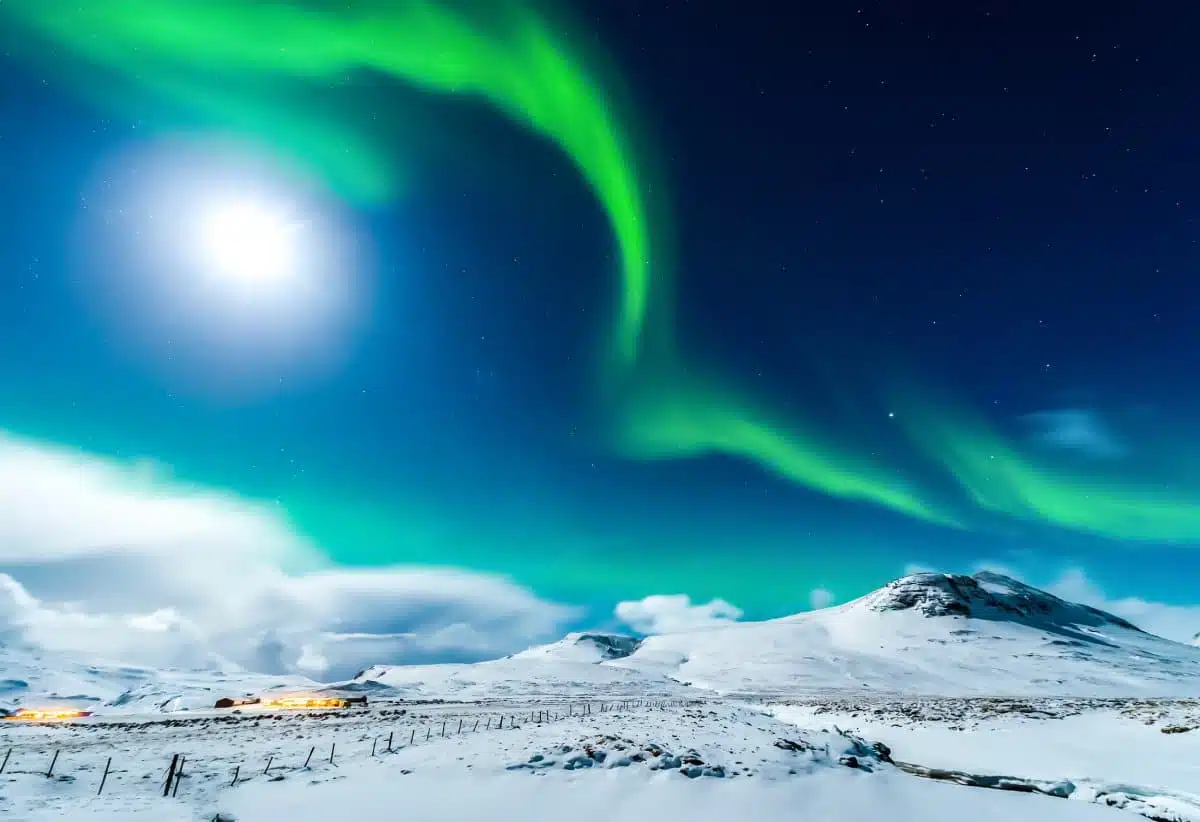Alaska, the largest and most rugged state in the United States, welcomes travelers with its majestic landscapes, diverse wildlife, and pristine natural beauty. This guide will take you through Alaska’s captivating terrain, from the coastal fjords to the towering peaks of the interior, offering a glimpse into the raw and untouched wilderness. Discover the enchanting magic of Alaska, where each turn presents an opportunity for extraordinary adventures and experiences. Whether seeking serene moments in nature, thrilling outdoor activities, or exploring the state’s rich cultural heritage, Alaska’s vast landscapes and welcoming communities promise an unforgettable journey.
1. Denali National Park and Preserve
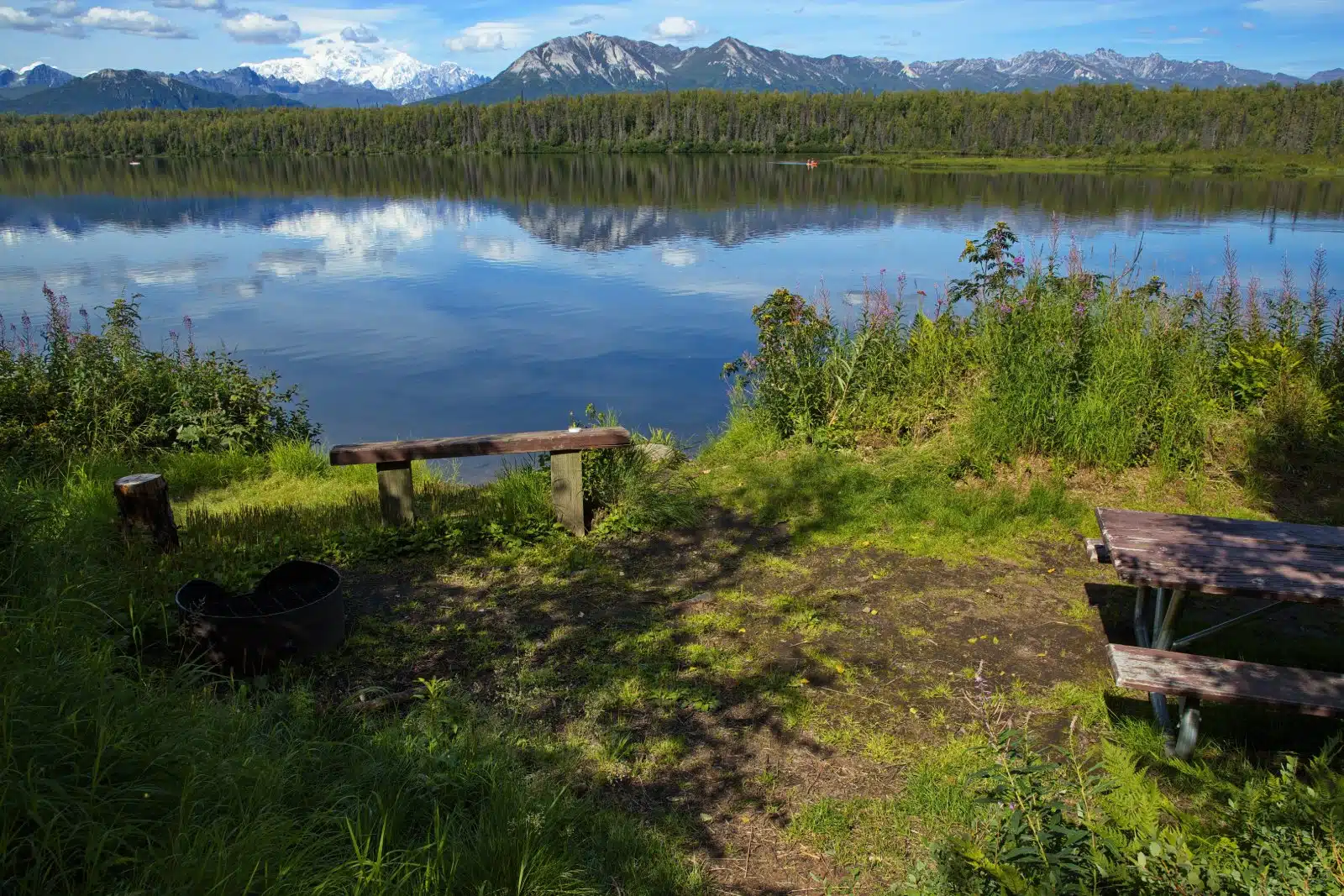
Image Credit: Shutterstock / Karel Stipek
At the heart of Alaska’s wilderness, Denali National Park and Preserve is a mesmerizing landscape dominated by North America’s highest peak, Denali. This vast area offers unparalleled opportunities for wildlife viewing, hiking, and backcountry adventures. The park’s diverse ecosystems range from taiga forests to high alpine tundra and snowy mountains, providing habitats for grizzly bears, wolves, caribou, and moose. The park road offers spectacular views and access to different areas for hiking and camping. When visiting, consider taking a bus tour for in-depth exploration and wildlife spotting, as private vehicle access is limited in the park. The experience of standing in the vast, unspoiled wilderness, with Denali towering above, is both humbling and exhilarating.
Insider’s Tip
Take the park shuttle buses for deeper exploration, as private vehicle access is limited.
When To Travel
Visit in summer (June to early September) for milder weather and better wildlife viewing opportunities.
How To Get There
Fly into Anchorage or Fairbanks and drive to Denali, or take the Alaska Railroad for a scenic journey.
2. Glacier Bay National Park
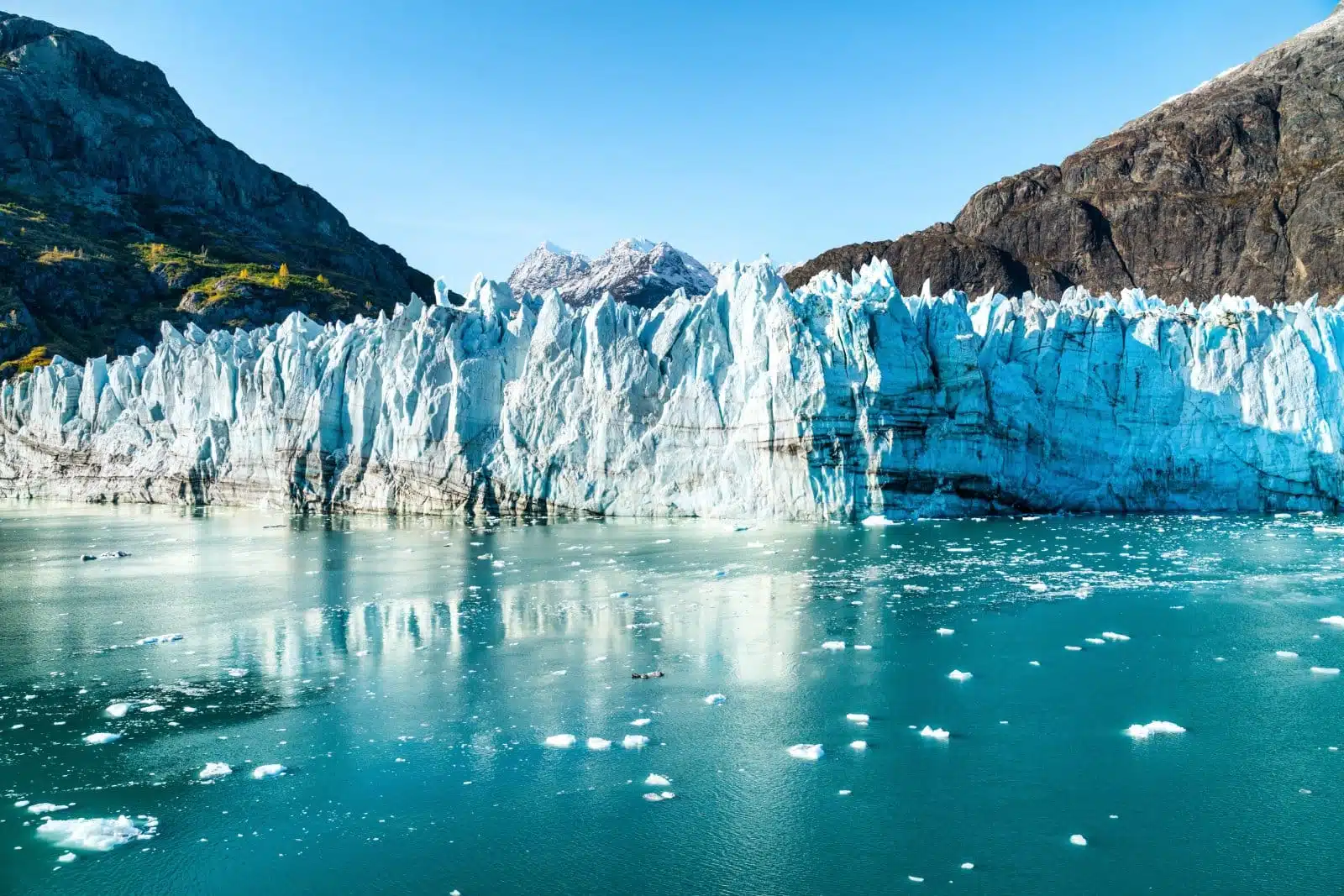
Image Credit: Shutterstock / Maridav
Glacier Bay National Park is an area of breathtaking glaciers and fjords located in southeastern Alaska. The park is accessible primarily by boat or plane, offering an undisturbed wilderness experience. Kayaking or cruising through the icy waters provides a front-row view of calving glaciers and abundant marine life, including humpback whales, seals, and sea otters. The park’s landscape is constantly changing due to the advancing and retreating glaciers, making each visit unique. For those interested in native culture, the park also offers insights into the Tlingit heritage. The tranquility and grandeur of Glacier Bay make it a must-visit for anyone seeking to experience Alaska’s pristine natural beauty.
Insider’s Tip
Opt for a small boat tour for a more personal and close-up experience with the glaciers.
When To Travel
The best time to visit is during the summer months for calmer seas and better accessibility. How To Get There
Most visitors arrive via cruise ships from Juneau, or take a small plane or boat from nearby towns.
3. The Kenai Peninsula
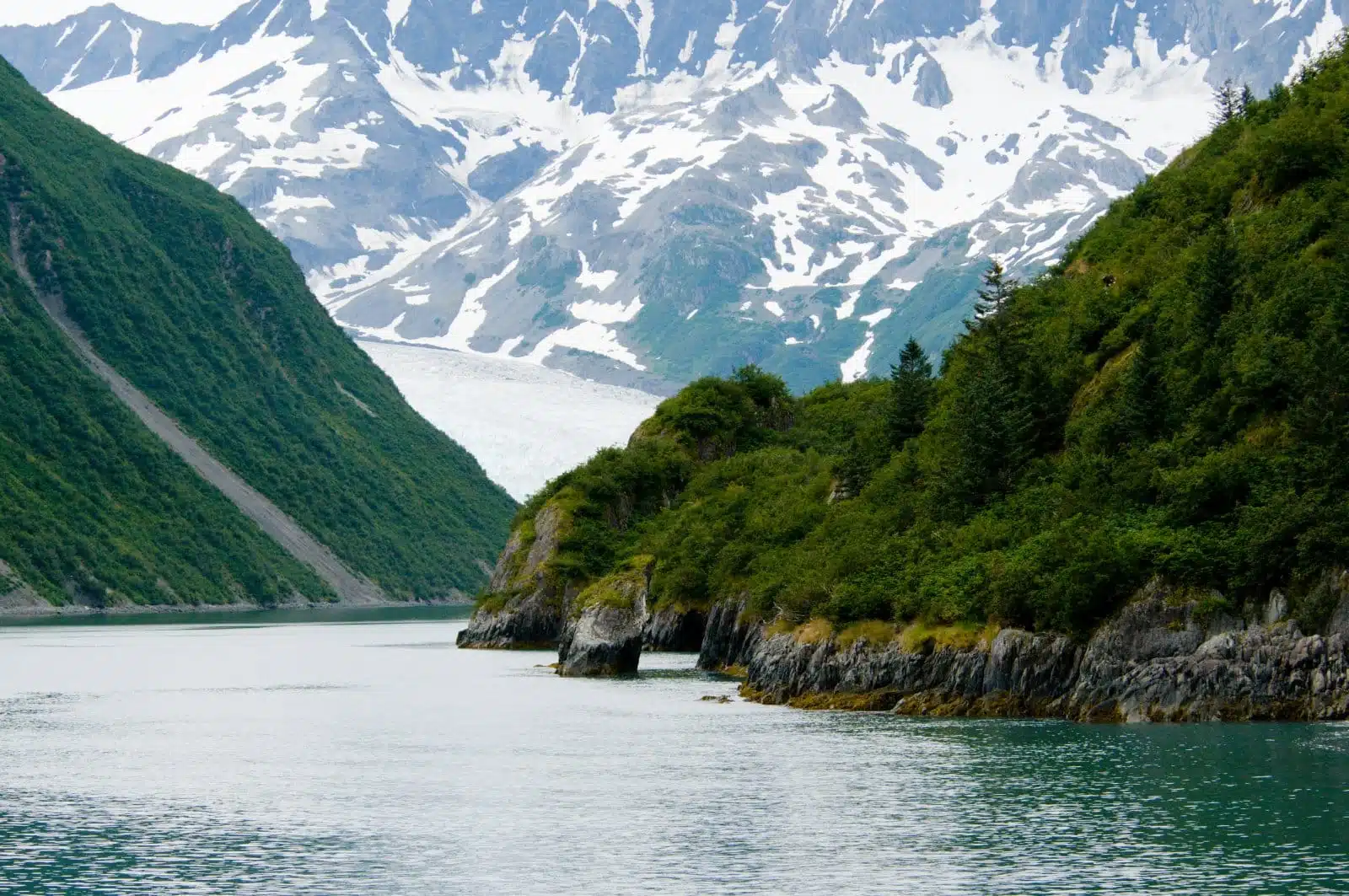
Image Credit: Shutterstock / Elliot Hurwitt
On the edge of the Kenai Peninsula lies Kenai Fjords National Park, a place where glaciers meet the sea. The park is famous for its abundant marine wildlife, such as orcas, sea lions, and seabirds, and for the Harding Icefield, one of the largest ice fields in the United States. Boat tours are a popular way to explore the fjords and see the glaciers up close. For a more adventurous experience, consider kayaking among the icebergs or hiking up to the Exit Glacier to witness the effects of climate change on the glacial landscape. The park’s remote beauty and the sound of glaciers calving into the ocean are unforgettable.
Insider’s Tip
Join a guided fishing trip to catch salmon and halibut, a must-do in Kenai.
When To Travel
Summer months are ideal for fishing, hiking, and wildlife tours.
How To Get There
Drive from Anchorage to the Kenai Peninsula, enjoying scenic views along the Seward Highway.
4. The Northern Lights in Fairbanks
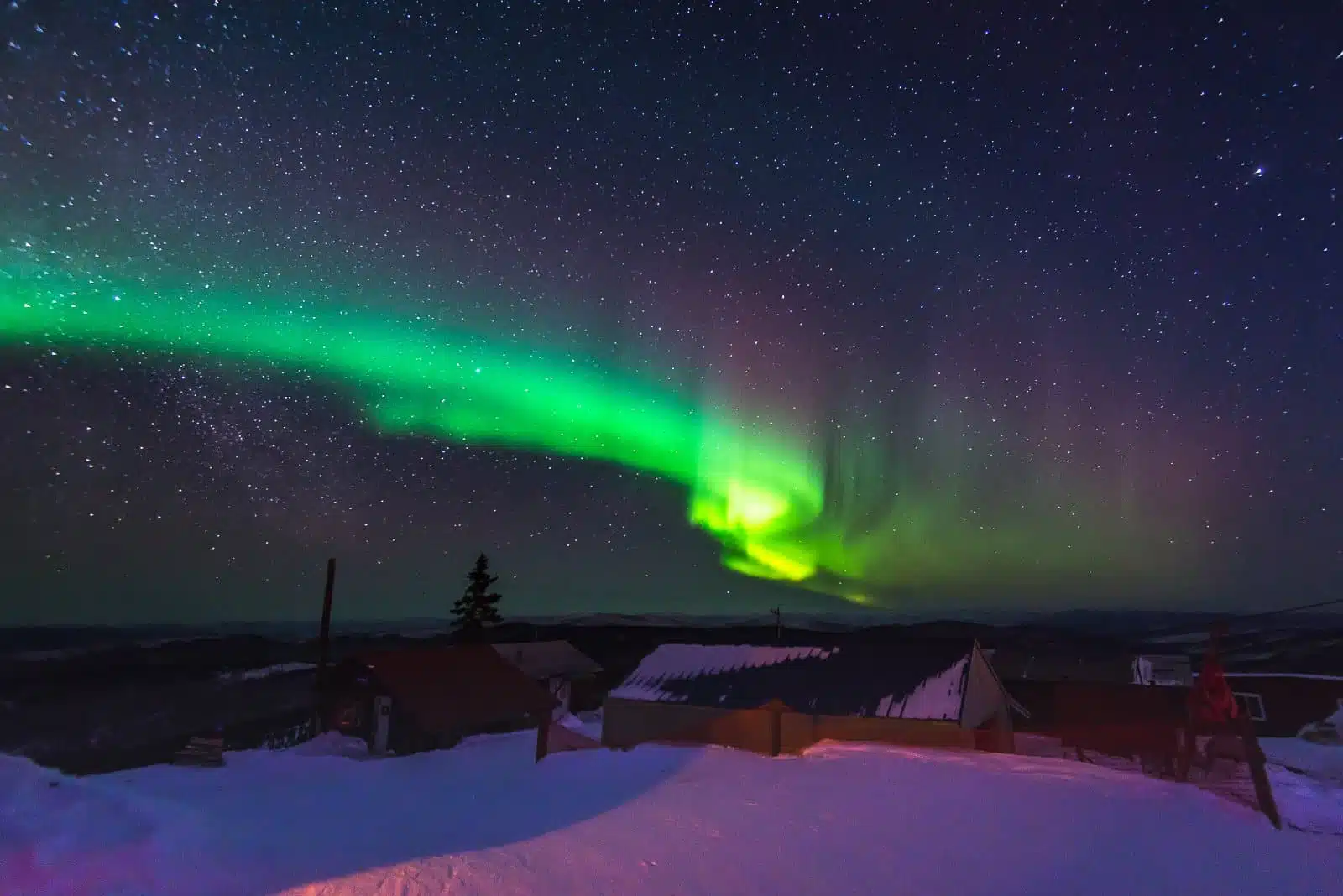
Image Credit: Shutterstock / Pung
Fairbanks, located in the interior region of Alaska, is known as one of the best places in the world to view the Northern Lights or Aurora Borealis. The city offers attractions such as the Museum of the North and Pioneer Park. However, the real draw is witnessing the spectacular display of the Northern Lights in the surrounding areas, especially during the colder months. The nearby Chena Hot Springs Resort offers a relaxing environment in which to enjoy the phenomenon. Fairbanks’ location and its cold, clear nights make it an ideal destination for aurora viewing.
Insider’s Tip
Stay at a lodge outside the city to escape light pollution for the best aurora viewing.
When To Travel
Late fall to early spring for the most active Northern Lights.
How To Get There
Fly directly into Fairbanks International Airport.
5. The Inside Passage Cruise
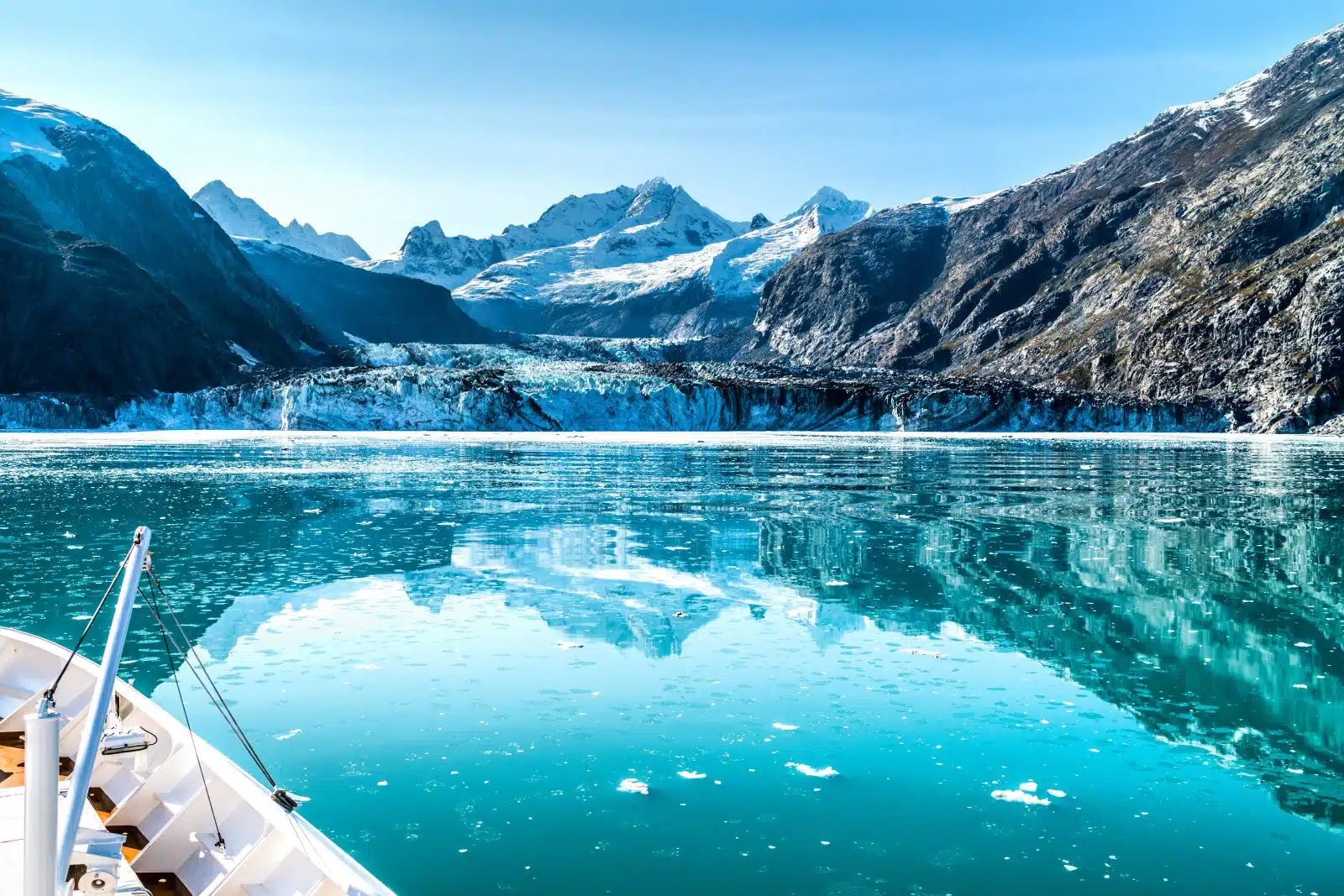
Image Credit: Shutterstock / Maridav
The Inside Passage is a coastal route for ships and boats along a network of passages weaving through the islands on the Pacific coast of North America. This scenic waterway is famous for its spectacular fjords, lush rainforest, and towering mountains. Cruising the Inside Passage offers a chance to see some of Alaska’s most picturesque towns, like Juneau, Ketchikan, and Skagway. These charming towns offer rich histories, often linked to the gold rush era, and are gateways to breathtaking natural beauty. The journey through the Inside Passage is also an excellent opportunity for whale watching and spotting other marine wildlife.
Insider’s Tip
Opt for a smaller cruise ship for access to narrower waterways and a more intimate experience.
When To Travel
Cruising season runs from late April to September, with the best weather in July and August.
How To Get There
Cruises usually start from Seattle, Vancouver, or Anchorage.
6. The Iditarod Trail Sled Dog Race
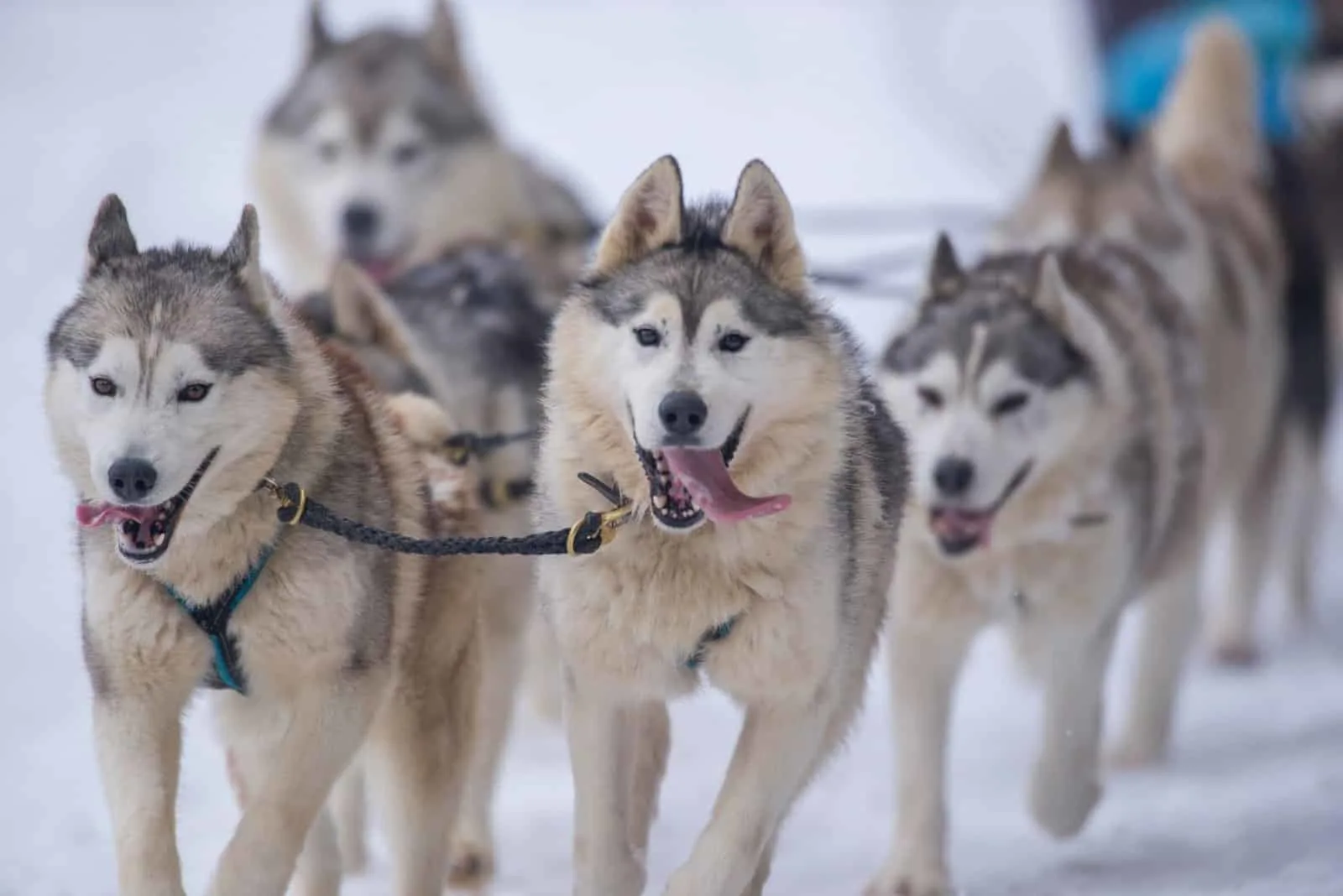
Image Credit: Shutterstock / Adrian Dedu
The Iditarod is a symbol of Alaska’s history and culture. This annual long-distance sled dog race runs from Anchorage to Nome in early March, entirely within the US state of Alaska. Mushers and a team of 14 dogs, of which at least five must be on the towline at the finish line, cover the distance in 8 to 15 days or more. The Iditarod is an event that captures the spirit of Alaska’s frontier and is an exciting spectacle for visitors. The race commemorates the 1925 serum run to Nome, also known as the “Great Race of Mercy,” when sled dogs were crucial in transporting diphtheria antitoxin serum through harsh conditions to save Nome from an epidemic.
Insider’s Tip
Visit the Iditarod Headquarters in Wasilla for an in-depth history of the race.
When To Travel
The race begins in early March, a perfect time for winter enthusiasts.
How To Get There
Anchorage is the main gateway, with the ceremonial start taking place downtown.
7. Kodiak Island and Bear Viewing
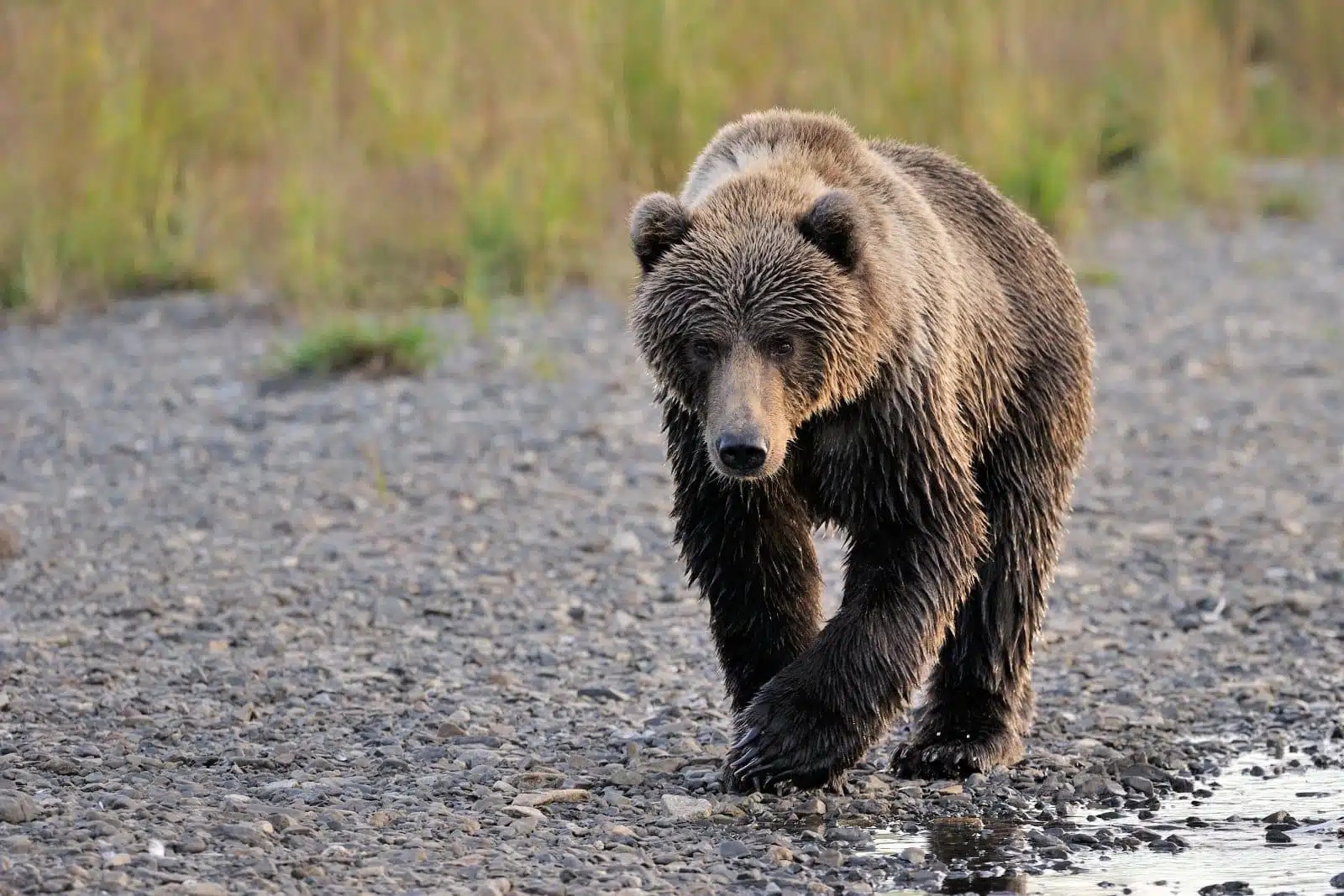
Image Credit: Shutterstock / AndreAnita
Kodiak Island, known for its brown bears and rich wildlife, offers a unique Alaskan experience. The Kodiak National Wildlife Refuge covers two-thirds of the island. It is home to around 3,500 Kodiak bears, a larger relative of the brown bear. The island’s rugged terrain and scenic beauty make it ideal for wildlife viewing, fishing, and outdoor adventures. Kodiak’s history, including its Russian heritage and its role in World War II, adds another layer of interest for visitors.
Insider’s Tip
Book a guided bear-viewing tour for a safe and respectful wildlife encounter.
When To Travel
Summer, particularly July and August, is the best time for bear viewing and outdoor activities.
How To Get There
Access Kodiak Island via a short flight from Anchorage or by ferry from Homer.
8. The Alaska Native Heritage Center in Anchorage
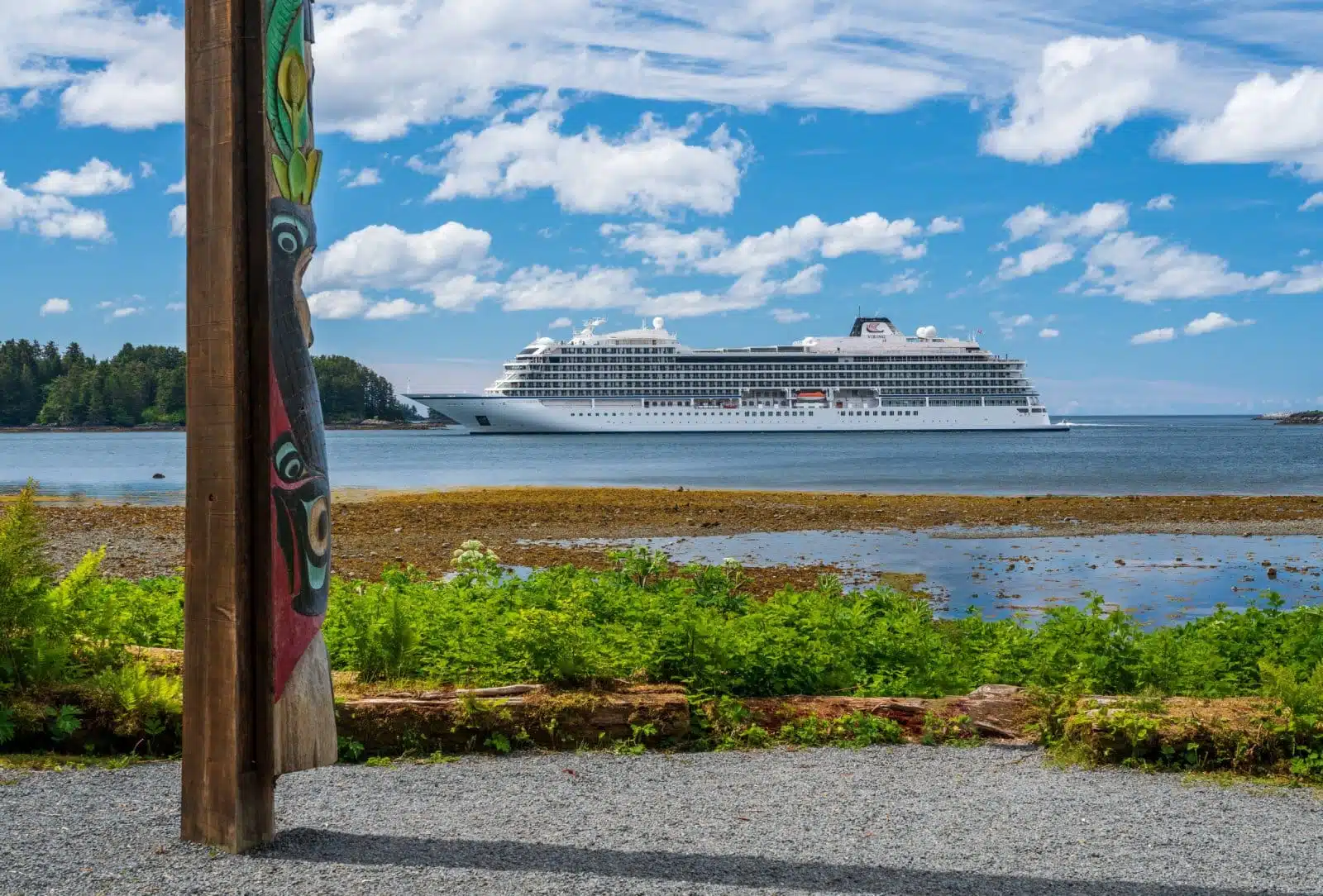
Image Credit: Shutterstock / Steve Heap
Alaska’s rich indigenous heritage is integral to understanding the state’s identity. The Alaska Native Heritage Center in Anchorage and the Sitka National Historical Park are excellent places to learn about the diverse cultures of Alaska’s Native peoples. Their traditions, art, and way of life are deeply connected to the Alaskan landscape. Experiencing cultural festivals, visiting native villages, or engaging in activities like native art workshops can provide valuable insights into these ancient cultures that have survived and adapted over thousands of years.
Insider’s Tip
Attend a cultural dance performance for a captivating display of native music and storytelling.
When To Travel
Open year-round, but summer offers the most comprehensive programming.
How To Get There
The center is located in northeast Anchorage, easily accessible by car or public transportation.
9. The Dalton Highway and Arctic Exploration
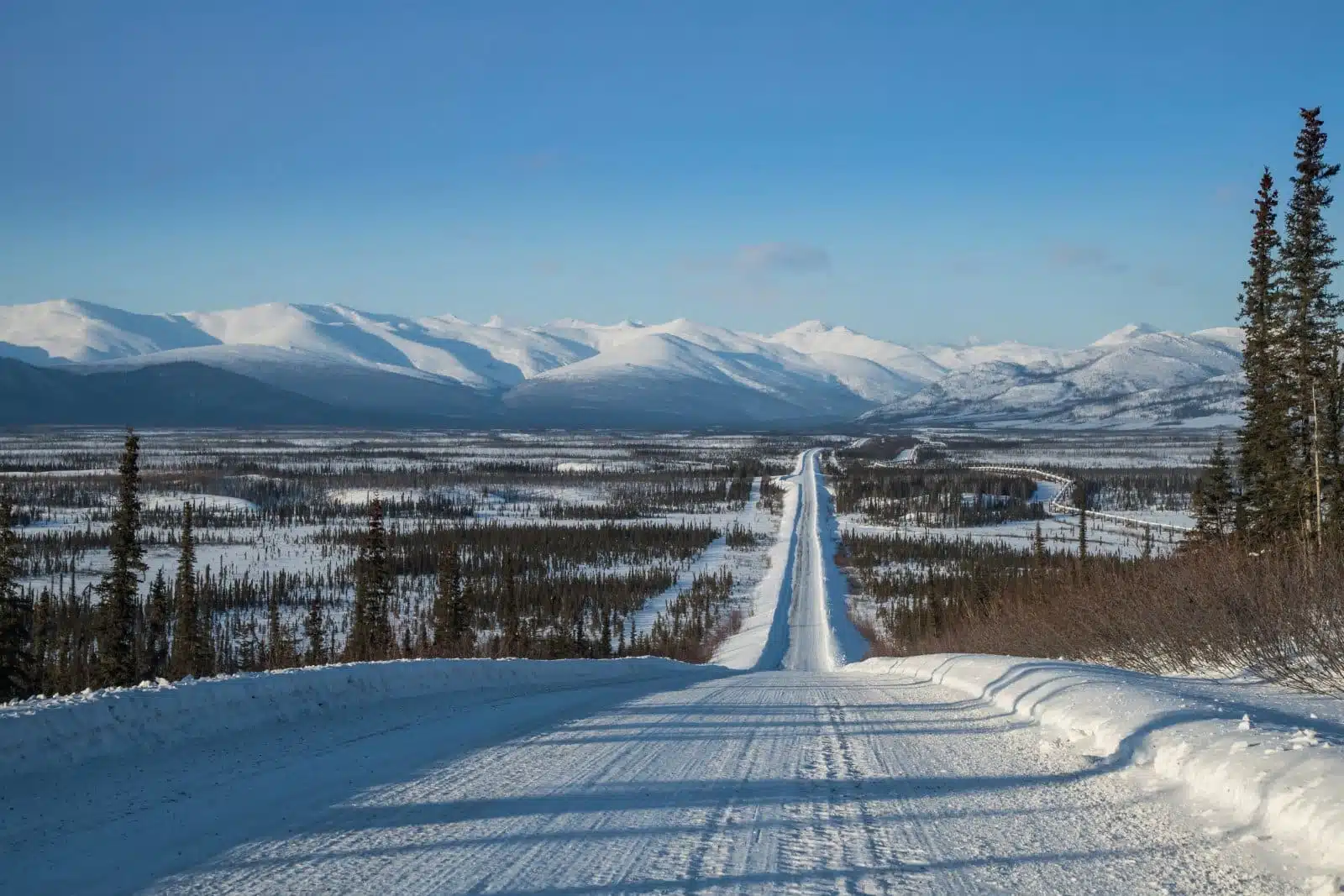
Image Credit: Shutterstock / FloridaStock
The Dalton Highway offers one of North America’s most remote and challenging road trips, leading to the stark beauty of Alaska’s Arctic region. Traversing this rugged landscape provides a sense of isolation and adventure that is hard to find elsewhere. The journey takes you through a land of tundra, boreal forests, and across the Arctic Circle, offering a unique perspective on the vastness and diversity of Alaska’s wilderness.
Insider’s Tip
Prepare thoroughly for the journey, as services along the highway are sparse.
When To Travel
Summer for better road conditions and accessibility.
How To Get There
The highway begins north of Fairbanks, accessible by vehicle with careful planning.
10. Sitka’s Russian and Tlingit Heritage
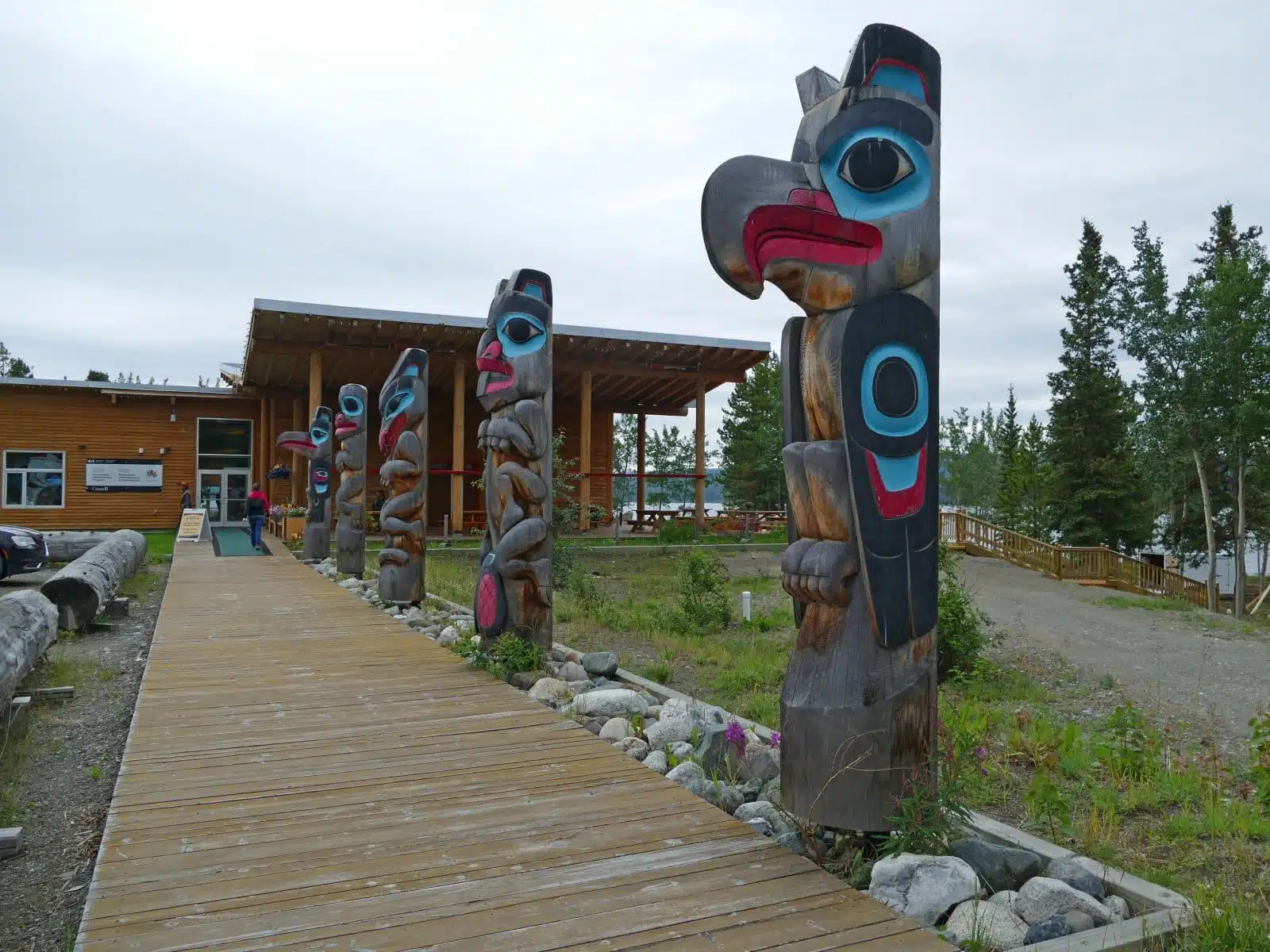
Image Credit: Shutterstock / Milan Sommer
Sitka, nestled on Baranof Island’s west shore, is rich in history and culture. Here, the influences of Russian colonization and Tlingit heritage coalesce, creating a unique cultural tapestry. Visitors can explore historic sites like St. Michael’s Cathedral, wander through the Sitka National Historical Park, and learn about the area’s fascinating history at the Sheldon Jackson Museum.
Insider’s Tip
Visit the Raptor Center to learn about Alaska’s birds of prey and conservation efforts.
When To Travel
May to September for milder weather and better wildlife viewing.
How To Get There
Fly to Sitka from Anchorage or Seattle, or arrive by ferry or cruise ship.
11. The Richardson Highway and Valdez
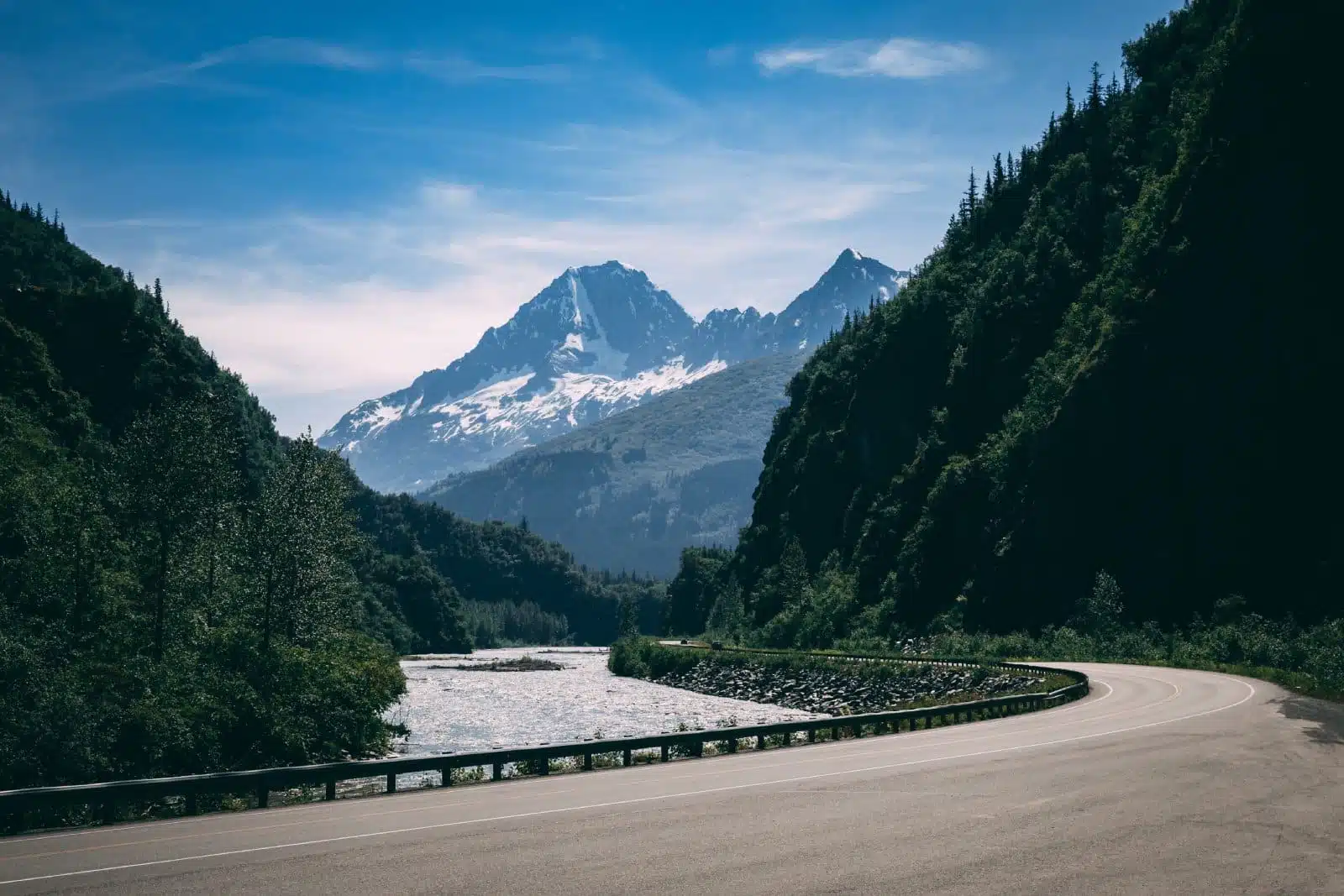
Image Credit: Shutterstock / Travis Worden
The Richardson Highway offers a scenic journey to Valdez, a town surrounded by stunning mountains and coastal scenery. Along the way, travelers pass through dramatic landscapes, including the Keystone Canyon and the Worthington Glacier. Valdez, known for its role in the Alaskan oil industry, is also a gateway to outdoor adventures like kayaking, fishing, and glacier hiking.
Insider’s Tip
Take a boat tour in Prince William Sound to see glaciers and marine wildlife up close.
When To Travel
Summer for the best weather and accessibility to outdoor activities.
How To Get There
Drive from Fairbanks or Anchorage, or fly into Valdez Airport.
12. Seward and Resurrection Bay
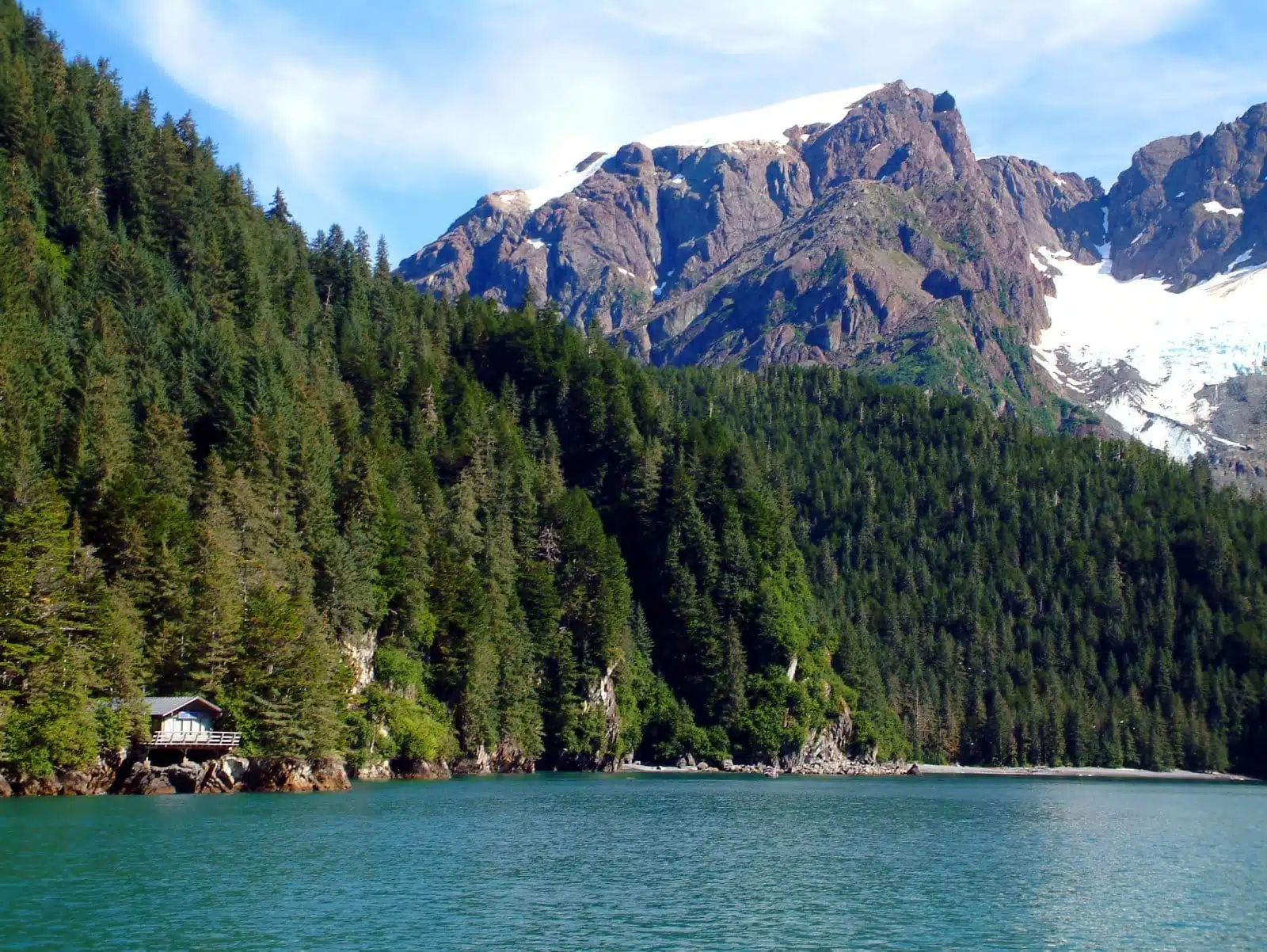
Image Credit: Shutterstock / Caleb Foster
Seward, a picturesque town on the Kenai Peninsula, serves as the gateway to the Kenai Fjords National Park. It combines natural beauty, wildlife encounters, and historical significance. Resurrection Bay is ideal for kayaking, fishing, and boat tours, where visitors can witness glaciers calving into the sea and an array of marine wildlife.
Insider’s Tip
Join a wildlife and glacier cruise in Resurrection Bay for a comprehensive experience of the area’s natural splendor.
When To Travel
Late spring to early fall for wildlife cruises and pleasant weather.
How To Get There
Drive from Anchorage or take the Alaska Railroad for a scenic journey.
The Bottom Line
Alaska’s attraction lies in its vast, untouched landscapes and the promise of adventure they hold. From the serene beauty of its national parks to its towns’ cultural richness, Alaska offers exhilarating and humbling experiences. This guide invites you to journey through the Last Frontier, encouraging exploration, respect for nature, and a deeper understanding of this magnificent state’s history and heritage. Whether you’re watching the Northern Lights dance across the Arctic sky, witnessing the calving of a glacier, or exploring the rich cultures of Alaska’s Native peoples, your journey through Alaska promises to be as unforgettable as the destination itself.
More From The Green Voyage
Top 10 Trending Travel Destinations 2024
6 Essential Banking Apps for International Travel – Managing Your Finances on the Go
Traveling With Kids – 10 Tips to Create Memorable Family Holidays
The post 12 Highlights of Alaska to Explore 2024 – The Great Wilderness first appeared on The Green Voyage.
Featured Image Credit: Shutterstock / Lillac.
For transparency, this content was partly developed with AI assistance and carefully curated by an experienced editor to be informative and ensure accuracy.
Tips for Trip Success
Book Your Flight
Find an inexpensive flight by using Kayak, a favorite of ours because it regularly returns less expensive flight options from a variety of airlines.
Book Your Hotel or Special Accommodation
We are big fans of Booking.com. We like their review system and photos. If we want to see more reviews and additional booking options, we go to Expedia.
You Need Travel Insurance!
Good travel insurance means having total peace of mind. Travel insurance protects you when your medical insurance often will not and better than what you get from your credit card. It will provide comprehensive coverage should you need medical treatment or return to the United States, compensation for trip interruption, baggage loss, and other situations.Find the Perfect Insurance Plan for Your Trip
